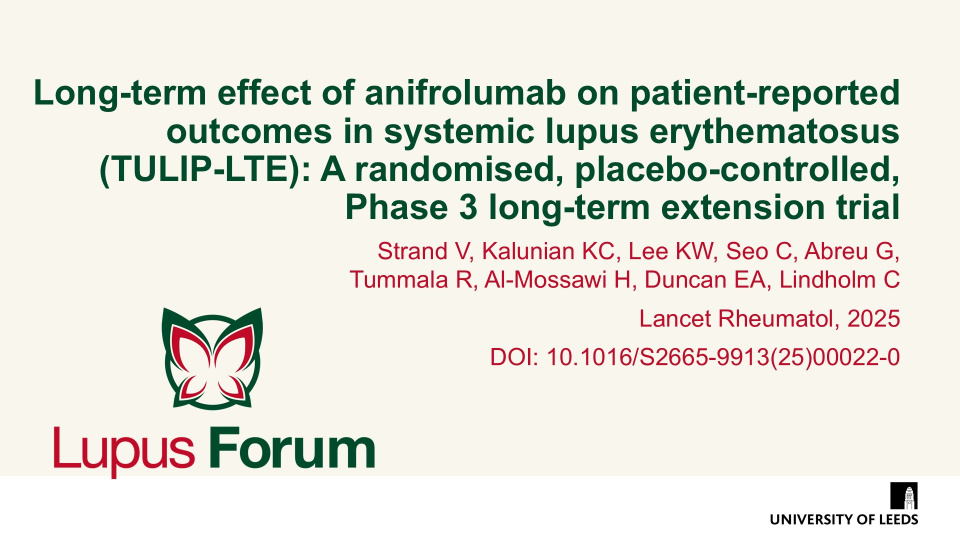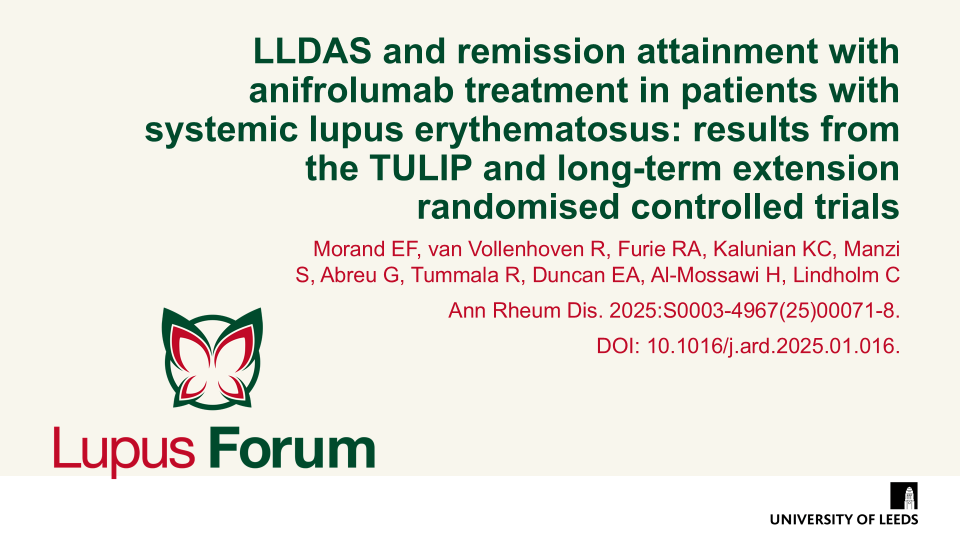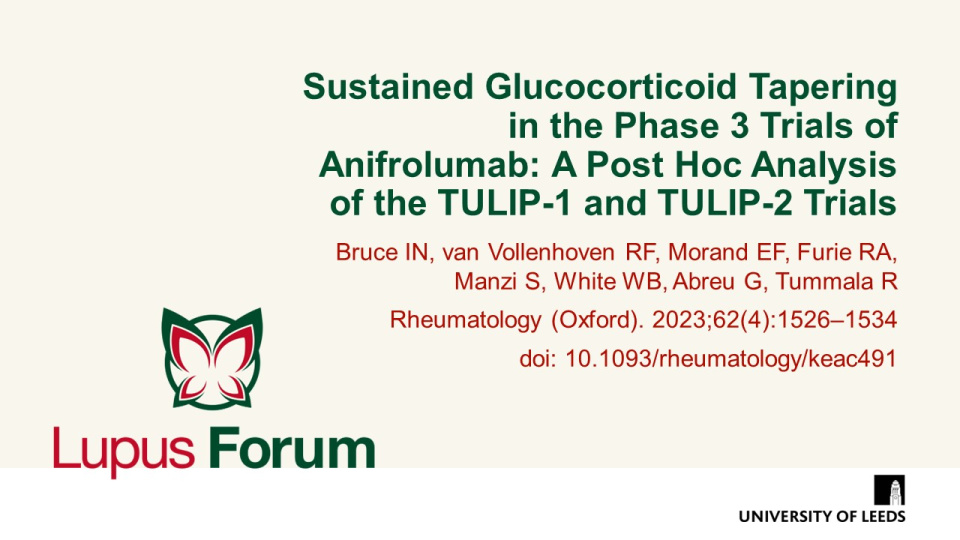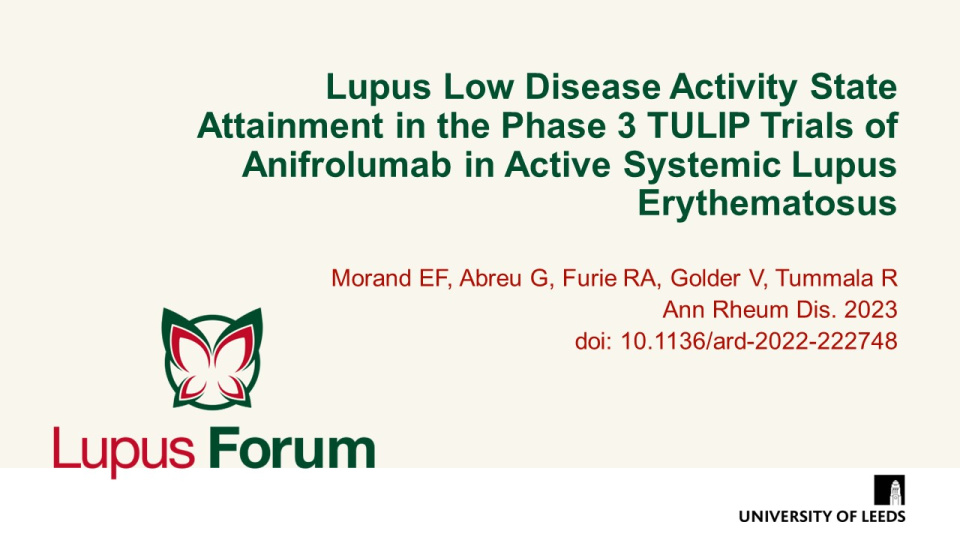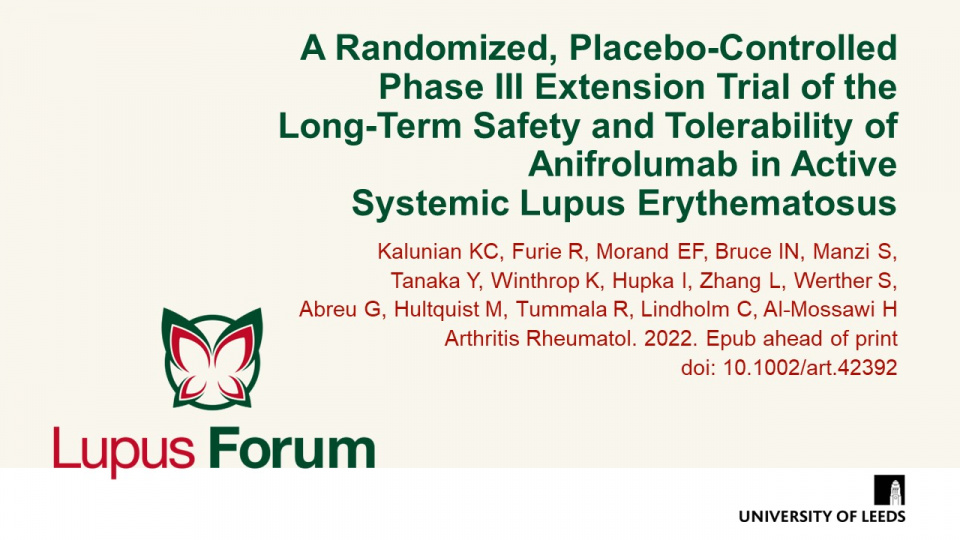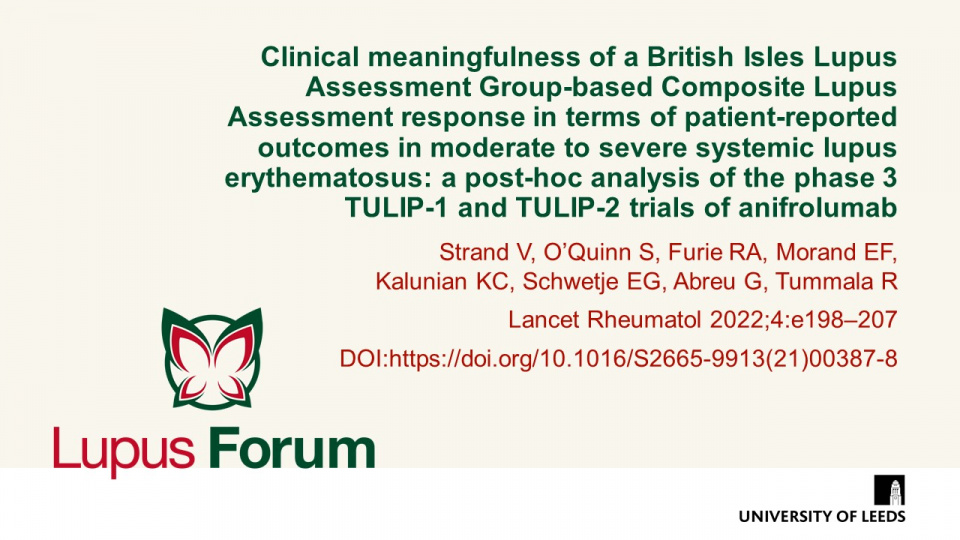Publications
Find coverage of the latest original articles on Lupus, focusing on those with data on therapeutic interventions and those that have clinical impact.
Long-term effect of anifrolumab on patient-reported outcomes in systemic lupus erythematosus (TULIP-LTE): a randomised, placebo-controlled, phase 3 long-term extension trial
Lancet Rheumatol, 2025 DOI 10.1016/S2665-9913(25)00022-0
Strand et al. performed an exploratory analysis to assess patient-reported outcome measures, to investigate how patients with moderate-to-severe SLE perceive the effects of long-term treatment with #anifrolumab on their health status and health-related quality of life. They report improvements in health status and health-related quality of life, including differences favouring anifrolumab compared with placebo. These numerical improvements in patient- reported outcomes occurred alongside improvements in disease activity, reduced glucocorticoid doses, and a tolerable safety profile. These data suggest that anifrolumab is an effective treatment option that might improve health-related quality of life.
LLDAS and remission attainment with anifrolumab treatment in patients with systemic lupus erythematosus: results from the TULIP and long-term extension randomised controlled trials
Ann Rheum Dis. 2025:S0003-496700071-8. DOI: 10.1016/j.ard.2025.01.016. Epub ahead of print
Morand et al. conducted a post-hoc analysis of the phase III TULIP-1 and TULIP-2 trials and their long-term extension, including 369 patients with moderate to severe SLE, to evaluate the long-term impact of anifrolumab on attainment of LLDAS and DORIS-defined remission. The results demonstrated that anifrolumab significantly improved the likelihood, speed, and duration of LLDAS and DORIS remission versus placebo over 4 years, with benefits sustained throughout the treatment period.
Keywords:
Sustained Glucocorticoid Tapering in the Phase 3 Trials of Anifrolumab: A post hoc Analysis of the TULIP-1 and TULIP-2 Trials
Rheumatology (Oxford). 2023 doi: 10.1093/rheumatology/keac491
Pooled analysis of the TULIP trials demonstrates that sustained glucocorticoid (GC) tapering is associated with several clinical benefits in patients with moderate-to-severe SLE.
Keywords:
Lupus Low Disease Activity State Attainment in the Phase 3 TULIP Trials of Anifrolumab in Active Systemic Lupus Erythematosus
Ann Rheum Dis. 2023. doi: 10.1136/ard-2022-222748
Post-hoc anaylsis of TULIP trials shows that, compared with placebo, anifrolumab treatment was associated with earlier, more frequent, and more prolonged and sustained lupus low disease activity state (LLDAS).
A Randomized, Placebo-Controlled Phase III Extension Trial of the Long-Term Safety and Tolerability of Anifrolumab in Active Systemic Lupus Erythematosus
Arthritis Rheumatol. 2022. Epub ahead of print doi: 10.1002/art.42392
Long-term extension study shows an acceptable long-term safety profile of anifrolumab in SLE, in addition to sustained improvements in disease activity and reduction in glucocorticoid use.
Clinical meaningfulness of a British Isles Lupus Assessment Group-based Composite Lupus Assessment response in terms of patient-reported outcomes in moderate to severe systemic lupus erythematosus: a post-hoc analysis of the phase 3 TULIP-1 and TULIP-2 trials of anifrolumab
Lancet Rheumatol 2022;4:e198–207
In patients with moderate-to-severe SLE, British Isles Lupus Assessment Group-based Composite Lupus Assessment (BICLA) responders report improvements in disease activity, health-related quality of life, fatigue, and pain.


